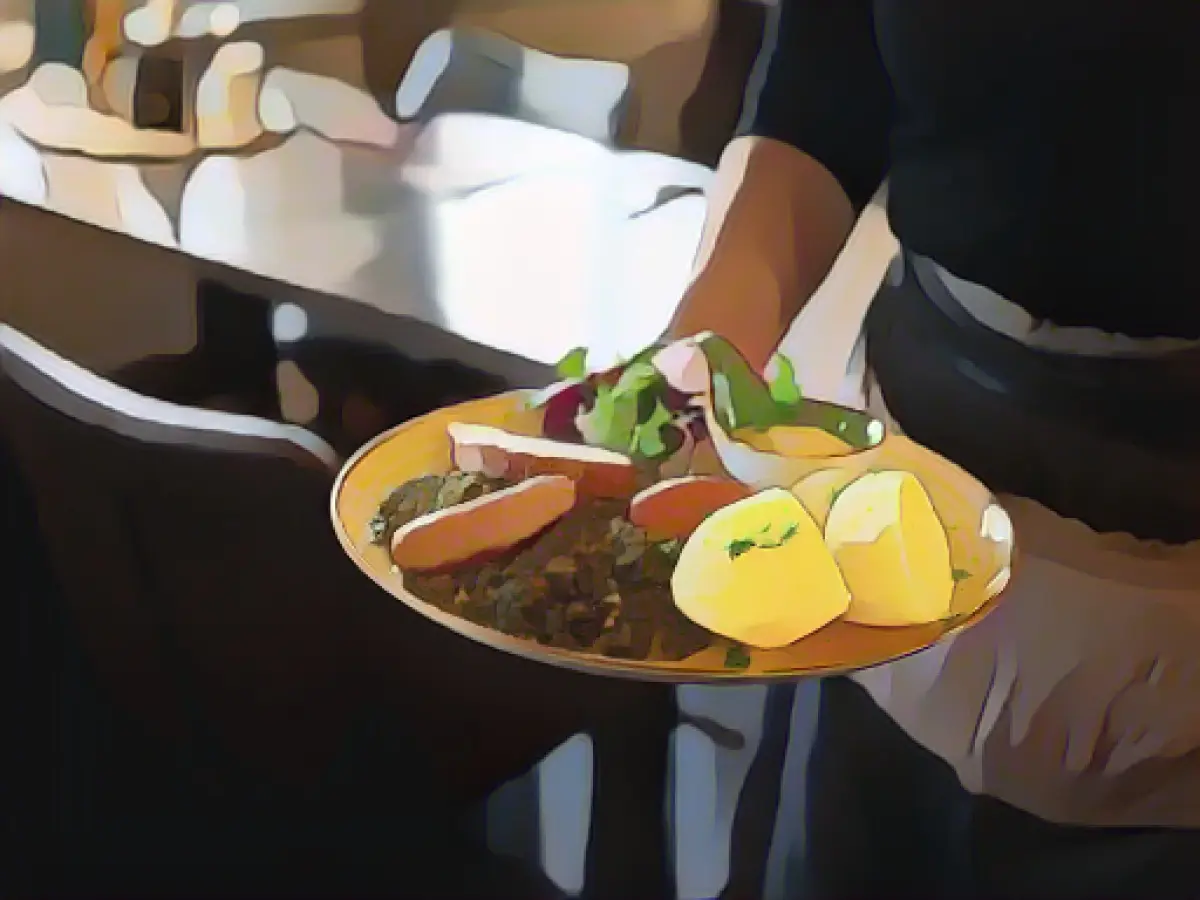FDP and CDU Squabble Over VAT Reduction for Hospitality Industry
The Free Democratic Party (FDP) and Christian Democratic Union (CDU) in the state of Baden-Württemberg are locking horns over the expiring VAT reduction for hotels and restaurants. The FDP's parliamentary group criticized Deputy Minister President Thomas Strobl (CDU) for his voting behavior in the Bundesrat, to which the Interior Ministry retaliated. According to the Stuttgart spokesperson, the FDP's initiative to increase taxes on restaurants is their response to the self-inflicted budget crisis in Berlin.
Bavaria's attempt to permanently retain the lower VAT rate in the catering sector failed in the Bundesrat. A resolution to extend the lower tax rate of 7 percent for food to drinks also failed to garner a majority in the state chamber. The FDP accused Strobl of hypocrisy, citing his criticisms of the FDP in the federal government but his lack of action in the Bundesrat.
The Interior Ministry in Stuttgart defended its stance, claiming that the FDP was distorting facts. They maintained that the CDU Baden-Württemberg supports retaining the lower VAT rate in the catering sector unconditionally. The CDU's green coalition partners in the southwest have expressed skepticism about the VAT reduction, which is a part of the green-black government alliance's unanimous voting rule in the Bundesrat.
In the realm of tax disputes within the German political landscape, tax discussions in the hospitality industry extend beyond VAT. Establishments in this sector may also be subject to business taxes and property taxes, which can significantly impact their operations and profitability.
The ongoing disagreement between the FDP and CDU over the VAT reduction for hotels and restaurants in Baden-Württemberg could influence the business climate for the hospitality industry in the region. Potential implications include uncertainty and delays in implementing future tax policies, localized economic impacts, impact on regional competitiveness, and political influence. However, national economic policies and stimulus packages, like the €130 billion stimulus package, have generally supported the hospitality industry during the pandemic by providing financial aid and reducing VAT temporarily.
Source:
Enrichment Insights:
- Uncertainty and Delays: Prolonged dispute could lead to uncertainty about future tax policies, affecting financial planning and investment decisions of the hospitality industry in Baden-Württemberg.
- Local Economic Impact: Delay or uncertainty in tax policies could impact consumer confidence and spending patterns, potentially affecting hotel bookings and restaurant visits.
- Regional Competitiveness: If neighboring regions implement VAT reductions while Baden-Württemberg does not, it could affect the competitiveness of local businesses.
- Political Influence: Dispute could reflect broader political tensions and priorities, potentially influencing other economic policies or initiatives that affect the hospitality industry.
- National Support: National economic policies and stimulus packages, like the €130 billion stimulus package, have generally supported the hospitality industry during the pandemic.








